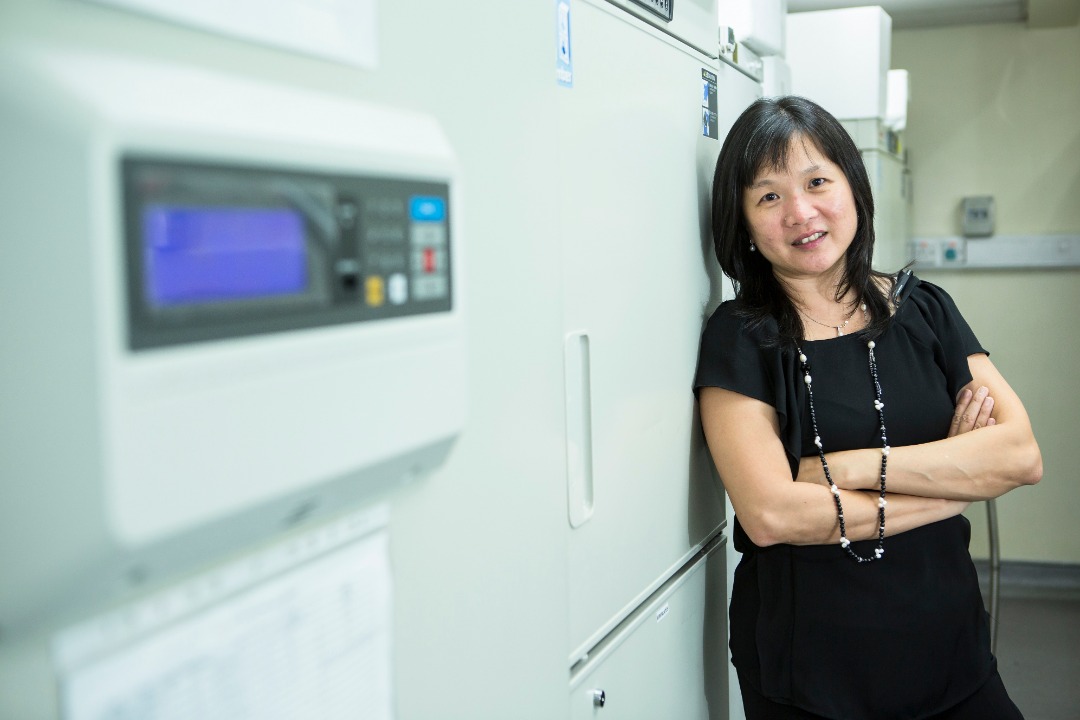KUALA LUMPUR, Sept 22 — Right policy structures, public-private partnerships, and adequate investments can pave the way for a personalised health care system in Malaysia, say health experts.
Health experts from various organisations and health care facilities discussed the implementation, challenges, opportunities, and the way forward for personalised health care system in a public webinar titled “Malaysia: How Ready Are We In Advancing Personalised Healthcare?” organised by the Galen Centre for Social and Health Policy in collaboration with the Jeffrey Cheah School and Medicine and Health Sciences of Monash University, as well as with the support of Roche Malaysia.
“Personalised health care maintains high and healthy quality of life over the lifespan, applying the right health interventions, for the right person at the right time,” said Prof Dr Maude E. Phipps from the Jeffrey Cheah School of Medicine and Health Sciences, Monash University Malaysia.
Dr Phipps listed collection and analysis of meaningful data, integrated use of tools and services to tailor prevention, diagnosis, treatment, as well as follow-ups for each person, which result in the cultivation of individual and population health in order to constitute a personalised health care system in the country.
Malaysia is ranked eighth out of 11 countries in the Asia-Pacific Personalised Health Index, behind Singapore, Taiwan, Japan, Australia, South Korea, New Zealand and Thailand.
In terms of funding available for scale-ups, Malaysia is placed at third rank in the list. This indicates that new personalised health technology companies should be able to find support developing solutions for the Malaysian market.
Under the policy content aspect, the country is placed at seventh rank, which shows the need to improve the national strategy or policy for personalised health or personalised medicine.
“Systematic collection and analysis of data from clinical studies and patients in the real world will enable us to provide better care options, speed up the discovery of new medicines and inform policies that enable access,” said Jascha-Nikolai Rybak, Integrated Patient Journey Partnering director at Roche Malaysia.
“Advances in diagnostics, including genomics, will allow us to predict who is likely to become ill.”
Galen Centre’s event report mentioned that Malaysia has the opportunity to learn from past experience and lessons learned from other countries and regions on the best approach to adopt precision medicine, instead of adopting wholesale models from high-income countries.
“I believe we should start with a clear policy where the Ministry of Health (MOH) would be the major stakeholder, in terms of how serious we are in adapting personalised health care or precision medicine,” said Prof Dr A. Rahman A. Jamal, chairperson of the Precision Medicine Initiative from the Academy of Sciences Malaysia.
Dr Rahman also said the Malaysian health care system should craft effective treatment measures by starting to focus on precision medicines and to find a right balance with the cost of treatment as well.
“There needs to be a paradigm shift. We cannot continue what we are doing now. We need to really start looking at the individuals, with respect to genes, lifestyle and environment and maximise the effectiveness of the care.”
Personalised health care can prove to be beneficial and more effective in terms of disease management and resource utilisation if it is implemented correctly in all phases — from prevention to diagnosis of illness and treatment.
Funding, educating medical practitioners and nurses of the significance of test results, and the lack of nationwide systematic monitoring of cancer patients have been major challenges in adapting personalised health care for oncology treatment.
“However, funding remains a problem. Novel precision medicine and techniques, genetic profiling in breast cancer for example, costs money, and insurance companies are unable to cover costs, while it is too expensive for MOH,” said Dr Muhammad Azrif Ahmad Annuar, consultant clinical oncologist and president of the Malaysian Oncological Society.
According to Dr Muhammad Azrif, without specialist training, medical practitioners and nurses face a challenge in interpreting test results, which is the key to applying personalised health care treatment.
Dr Teo Soo-Hwang, chief scientific officer in Cancer Research Malaysia, stressed that research among different populations is vital as precision medicine and personalised health care are grounded on genetics and these are different in different populations. Funding is an important enabler of research for precision medicine and personalised health care because data is the key to making informed policy decisions.
She also noted that the personalised health care system has moved ahead in private hospitals, but the implementation of an inclusive personalised health care system in public health facilities is also important to serve people across socioeconomic backgrounds.
“Cancer is one of the areas where implementation of personalised care linking genetics to prevention and linking genomics to treatment strategies holds great promise,” said Dr Teo.
“Precision genetics can help people to understand whether they have an 80 per cent or a 2 per cent chance of developing cancer in their lifetime, thus enabling better decisions around screening, prevention and early detection.
“Precision genomics can help people to understand whether they will need treatment A or treatment B, thus enabling better decisions to improve survival.”
At the same time, public-private partnership can widen the opportunities for the implementation of personalised health care.
The environment of research within the public sector offers wide and far-reaching partnership opportunities for personalised health care, said Dr Cheah Wee Kooi, the head of the Medical Department and Clinical Research Centre at Taiping Hospital.
According to Dr Cheah, Malaysia’s National Institutes of Health (NIH) has six research institutes ranging from diagnostics to behavioural sciences. The Institute for Clinical Research (ICR), one of the six research institutes under the NIH, functions as the clinical research arm of the MOH. It has 36 branches located at major MOH hospitals (CRC hospitals) and the National Cancer Institute.
Dr Cheah shared that smartphones were used to detect intermittent atrial fibrillation (a condition where a person experiences heart rhythm problems) in Sarawak, which eventually led to documented improvements in the detection of idiopathic stroke among people above the age of 55 in Sarawak.
Finally, the Galen Centre’s event report suggested some key recommendations to advance personalised health care in the country. That includes establishing genomic medicine centres for effective and strategic targeting of certain diseases, as well as boosting research and policy aspects on personalised health care.
The report also advocated efficient communication with patients, particularly to improve their understanding on personalised health care, especially on matters pertaining to genetic information as well as to build trust on data confidentiality.
In addition, speeding up discussions and collaborations among stakeholders from various industries will accelerate the acceptance of a personalised health care system on policy grounds.
Eventually, that may lead to the development of a national personalised health care roadmap to secure priorities and resources for further progress.
On top of it all, specific funding and support focusing on digital health is vital to ensure the sustainability of personalised health care systems and precision health.








